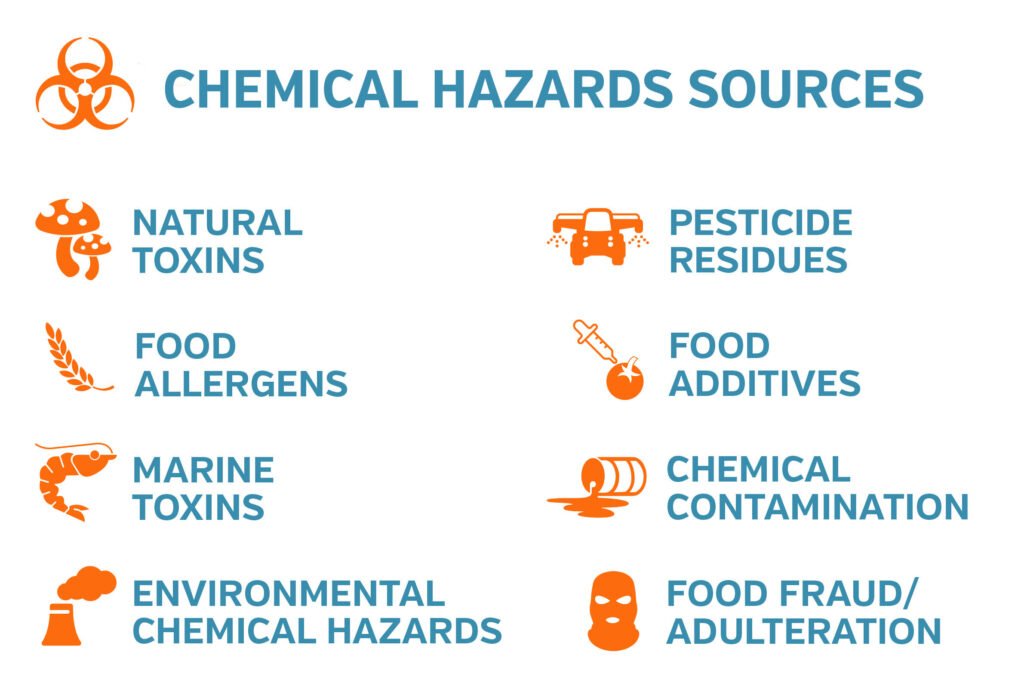
Understanding Food Chemical Safety
Introduction
In today’s world, where health and wellness are front and center, food safety is something we can’t afford to ignore. With over 10,000 additives sneaking into our food products here in the U.S., it’s only natural to pause and wonder what we’re really putting on our plates. The Environmental Working Group (EWG) brings to light some serious concerns regarding food chemicals and natural toxins that may contribute to long-term health issues. This article aims to give you the essential insights from recent research on food safety, so you can make informed dietary choices that empower you to take control of your health. Let’s dive into the vital elements of food safety, looking closely at harmful additives and toxins, and share practical steps to help you make better decisions.
—
Understanding Food Chemical Safety
Did you know the FDA has given the green light to a staggering number of food additives—more than 10,000? Many of these made their way into our food supply with hardly any oversight. This reality can feel alarming, as it places the responsibility for safety squarely on food manufacturers. It’s crucial to recognize that these chemicals have been linked to serious health concerns, including cancer, developmental disorders, and hormonal imbalances.
Why You Should Be Concerned
Here’s something to think about: according to EWG research, around 99% of food chemicals approved since the year 2000 got their stamp of approval from the companies themselves rather than through thorough FDA examination. This means that your beloved snacks might contain additives that aren’t as safe as they seem. Take potassium bromate, for example—a common ingredient in baked goods—which has raised some serious eyebrows due to its potential risks.
Actionable Tip: Read Labels Vigilantly
One of the simplest yet most effective things you can do is to make it a habit to read food labels before you buy. Keep an eye out for additives listed on the EWG’s “Dirty Dozen” list, which outlines the top food chemicals you should steer clear of. By being proactive about understanding these ingredients, you can dramatically cut down on your exposure to harmful substances and safeguard your health in the long run.
—
The EWG’s Dirty Dozen: Harmful Food Chemicals to Avoid
The “Dirty Dozen” list is a practical guide for anyone who cares about what they eat. It identifies twelve types of food chemicals that are particularly toxic and should be avoided whenever possible.
Top Offenders Include:
1. Potassium Bromate: A flour additive linked to kidney damage and tumors.
2. Propyl Paraben: Commonly found in processed foods, this preservative is connected to hormone disruption.
3. Aspartame: This artificial sweetener has sparked debate due to its questionable side effects, such as headaches and potential weight gain.
Actionable Tip: Choose Whole Foods
Whenever you can, opt for whole foods. Fresh fruits, crisp vegetables, whole grains, and unprocessed proteins are less likely to contain those pesky harmful additives. By concentrating on a clean diet filled with wholesome options, you naturally reduce your risk of exposure to harmful chemicals.
—
Natural Toxins: Understanding Their Risks
We often hear about artificial additives, but let’s not forget that there are natural toxins that can be just as concerning. These natural toxins appear in a variety of common foods, often as a defense mechanism from plants or due to environmental factors.
Common Natural Toxins
– Mycotoxins: These are found in moldy grains, and improper storage can lead to contamination.
– Lectins: Present in kidney beans, undercooking them can cause serious digestive issues.
– Cyanogenic Glycosides: Found in cassava, these toxins require special preparation to reduce their harmful effects.
Understanding the Dangers
It’s important to remember: not all natural substances are safe. Certain types of mushrooms and seafood can carry toxins that remain even after cooking. For instance, there are algal toxins in shellfish that have led to severe health problems for some after consumption.
Actionable Tip: Educate Yourself About Food Preparation
Knowing the right way to prepare certain foods is critical. Always ensure that kidney beans are cooked thoroughly to neutralize lectins. And unless you’re completely sure, it’s best to steer clear of wild mushrooms.
—
How to Apply This Information
Taking steps toward better food safety can be incredibly empowering. Here are some practical strategies you can implement:
1. Stay Informed: Check out resources like the EWG for updates on food safety and chemical risks regularly.
2. Engage in Food Education: Consider attending workshops or reading well-researched books and articles to expand your understanding of safe food handling and preparation.
3. Incorporate Diversity in Your Diet: Varying your produce selection not only gives you a better range of nutrients but also helps minimize your exposure to certain toxins.
4. Become Your Own Advocate: Don’t hesitate to ask questions about food safety—whether at restaurants or while grocery shopping. Your voice matters, and knowledge is a key weapon in the fight against food safety issues.
—
Conclusion
Food safety is a critical aspect of our lives that deserves our attention. The presence of both synthetic chemicals and natural toxins in our food chain poses real challenges, but you have the power to stay informed and ahead of these risks. By becoming a diligent label reader, gaining clarity about harmful additives, and mastering proper food preparation techniques, you can create a safer eating environment for yourself and your loved ones.
Encourage your friends and family to join in on this quest for safer eating by sharing this article. Let’s prioritize informed food choices—after all, your health—and theirs—deserve it! If you’re interested in diving deeper into topics about nutrition and health, feel free to explore our other blog posts.
—
Written by Alexander Babinets
Founder of Express Fitness, certified coach, and author helping people get in shape without excuses.
📍 expressfitness.ca | 📩 info@expressfitness.ca
👤 More about me → alexanderbabinets.com
Hashtags: #food #safety #toxins #health #additives #natural #chemicals #harmful #about #these #foods #understanding #their #risks #into
